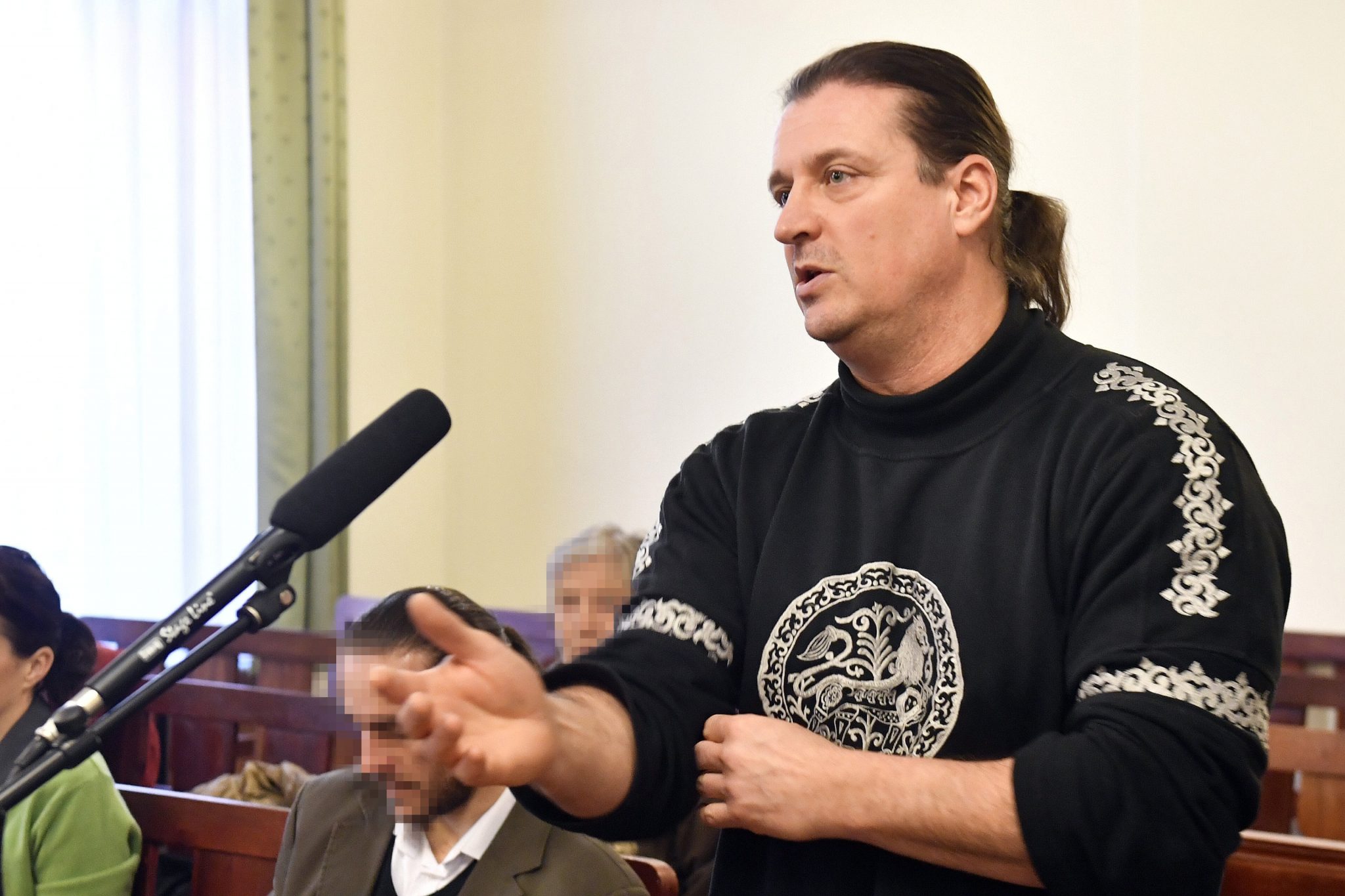
The municipal court of Budapest has sentenced György Budaházy to 17 years in prison for terrorist activities and other crimes committed during the social-liberal (MSZP-SZDSZ) government between 2007 and 2009, at the retrial of a case dismissed in 2018. This is a tougher sentence than he was originally given six years ago. The decision is non-binding.
Budaházy first gained fame country-wide after he blockaded Erzsébet Bridge in 2002, suspecting electoral fraud after the left-liberal victory at the elections. He had demanded the recount of votes, which did not happen.
After Socialist PM Ferenc Gyurcsány’s Őszöd speech was leaked in 2006, he is thought to have been involved in organizing the (often violent) protests, besides other radical activism opposing the then ruling forces.
According to the charges of the case, Budaházy set up a terrorist organization called the Hungarians’ Arrows (Magyarok Nyilai) to carry out attacks against lawmakers of the then ruling Socialist (MSZP) and Free Democrat (SZDSZ) alliance between 2007 and 2009.
Budaházy and his accomplices had also been charged with throwing petrol bombs at the homes of Socialist and Free Democrat politicians and their parties’ headquarters, as well as throwing Molotov cocktails at gay bars and other locations, such as a ticket office in Budapest’s 13th district. Budaházy’s group is thought to have been behind the beating of a former Socialist politician turned pro-Fidesz TV personality, Sándor Csintalan.
According to the defense, the charges are unfounded. The defendants have also denied guilt all along.
The case has been ongoing for 13 years now, Budaházy first was arrested in June 2009. In the summer of 2016, the Municipal Court of Budapest sentenced him to 13 years in prison. Of the 17 defendants, 15 were sentenced to 5-13 years in prison each for terrorist activity. Both the prosecution, Budaházy, and the other defendants appealed the ruling at the time which eventually resulted in a Budapest appeals court’s dismissal of the ruling and order of a retrial in 2018.
According to the main reasons for the mistrial, the public was wrongly excluded from the trial, which is an essential condition for a fair trial. The court also seriously breached its responsibility to state reasons of guilt, therefore the judgment was significantly unfounded.
However, the prosecution’s key witness died more than a year ago, which hardly made the accusations easier to prove.
At the trial, five other accomplices were handed prison sentences of more than ten years, and others of around five years, the court revealed on Wednesday.
Although the time Budaházy spent in pre-trial detention is calculated in his sentence, he has to actually serve the entire sentence with no possibility of parole.
Just as the verdict had been announced (and his arrest had been ordered), a minor scandal broke out as his supporters were loudly protesting the decision they found unjust. Reportedly, the police had to evacuate the hall and the hearing could only continue a little later.
Mi Hazánk leader, and the radical rightist party’s PM candidate, László Toroczkai was also angered. “13 years have passed, everyone could rightfully hope for a fairer verdict,” he commented adding that “meanwhile, thanks to Fidesz, Gyurcsány got away with the Sukoró corruption case that we uncovered together with Gyuri. Gypsy criminals, murderers, and political criminals do not receive such a severe punishment. This is the 12 years of the ‘national’ government.” Toroczkai also promised that if they get into parliament, they will immediately present an amnesty law that would grant public pardon to all those sentenced in political cases between 2006 and 2010.
The ruling is non-binding, meaning that the case is expected to go on.
featured image: Budaházy in 2019; via Zoltán Máthé/MTI